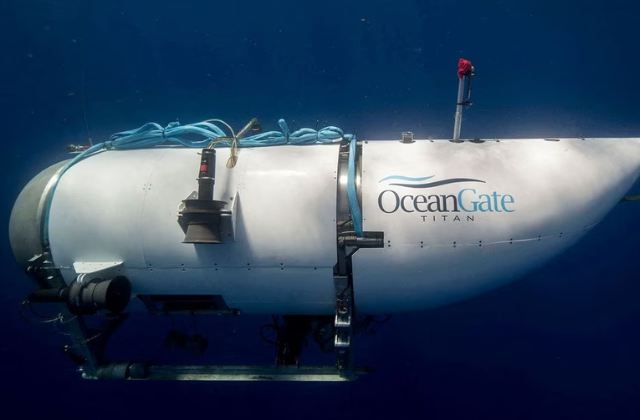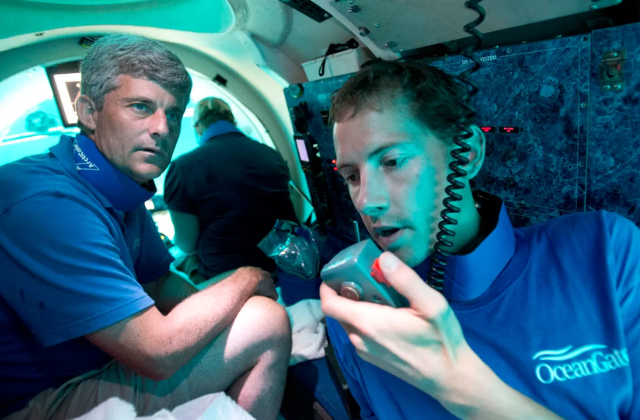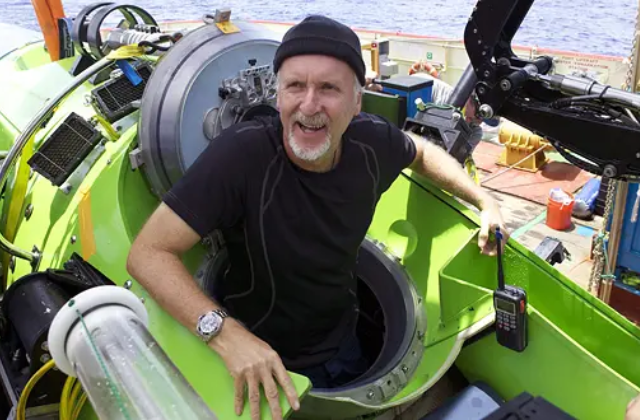The biggest oceanic mystery of the year has been solved. The OceanGate submersible, Titan Sub, meant to explore the Titanic wreckage has suffered a catastrophic implosion, leading to its destruction after days at sea. James Cameron, the director of “Titanic,” has expressed his belief that something was amiss when both communication and navigation were lost simultaneously.

James Cameron is an experienced member of the diving community who has personally made 33 dives to the Titanic. In his conversation with BBC News, he shared his reflections on the tragedy following the announcement by submarine company OceanGate that the five individuals who descended are presumed deceased.

What Happened To The Titan Sub?
On June 18th, a submersible embarked on a mission to explore the submerged remains of the Titanic near Newfoundland. Unfortunately, it lost communication just two hours later. The expedition included a well-known Titanic expert, an adventurer with world records, two members from a wealthy family in Pakistan, and the CEO of the company.

The US Coast Guard, along with experts from Canada, the UK, and France, launched a joint search operation to locate the Titan submersible. This triggered an urgent international rescue effort. However, yesterday, the US Coast Guard confirmed that there were no survivors following a catastrophic implosion in the deep waters of the North Atlantic.
Was The Titan Sub Really Safe?
Concerns regarding the safety of the Titan submersible were previously raised in 2018. A lawsuit was filed by David Lochridge, the former head of marine operations at OceanGate. The lawsuit, which was settled later that year, claimed that Lochridge was terminated after expressing concerns about the company’s untested and experimental design of the craft.

According to a history professor at Campbell University in North Carolina, deep-sea operations receive less scrutiny compared to space launch companies. It is important to note that the Titan submersible was not registered as a US vessel or with international safety regulatory agencies.
Read More: Sylvester daCunha Will Remain Immortal Through The Amul Girl
What Did James Cameron Say?
He stated that the company behind the sub, OceanGate, had taken shortcuts during its construction and did not seek certification because they knew they wouldn’t meet the standards. “I was very suspicious of the technology that they were using. I wouldn’t have gotten in that sub,” he said in an interview with BBC News.
Titan was built with carbon fibre and titanium. In 2012, James Cameron utilized a different technology for the Deepsea Challenger sub expedition in the Pacific Ocean, reaching an astonishing depth of 10,912 meters, the deepest known oceanic trench. In contrast, the wreckage of the Titanic rests at a depth of 3,810 meters (12,500 feet).

James Cameron mentioned that “OceanGate was warned” by the deep submergence community. The Marine Technology Society (MTS) sent a letter to OceanGate in 2018, stating “the current ‘experimental’ approach adopted by OceanGate…could result in negative outcomes.”
Cameron also emphasized the importance of being aware of the risks involved in venturing into the Titanic wreck, noting that it is a dangerous site. He lamented the preventability of the tragedy, saying, “In the 21st Century, there shouldn’t be any risks. We’ve managed to make it through 60 years, from 1960 until today, 63 years without a fatality… So, you know, one of the saddest aspects of this is how preventable it really was.” Watch his full interview here:
How Can We Prevent It?
The recent tragedy involving the Titan submersible has brought attention to the safety and scrutiny of deep-sea operations. James Cameron’s concerns about the submersible’s construction and previous warnings issued to OceanGate have raised questions about the need for additional safety regulations.
This incident serves as a reminder of the risks associated with deep-sea exploration and the importance of prioritizing safety and informed consent in such expeditions. Moving forward, there is a call for learning from past mistakes and striving for preventable accidents in the future. I would like to ask the reader, what do you think? Is it really safe to travel to the deep sea?


